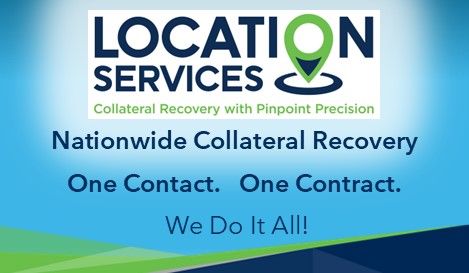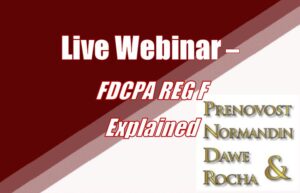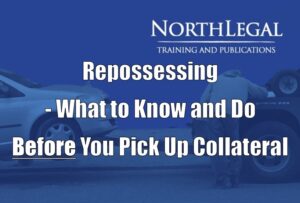 Greetings from the great State of Alabama! ROLL TIDE ROLL!!
Greetings from the great State of Alabama! ROLL TIDE ROLL!!
In today’s fast pace high tech world we are all looking for the next tool to give us that edge over our competitor and our prey as well. Sometimes we need to take a page from something a Drill Sargent taught me so many years ago the “Kiss Method” which translates to “Keep It Simple Stupid” just as a carpenter does not go to work each day equipped with just a single hammer on his tool belt, because he needs to be armed with the right tools for the right job. A Skip-tracer also needs the right selection of ‘tools’ to perform his job. The information age ushered in an overwhelming choice of resources for skip-tracers, but the tried and true methods still prove highly successful and necessary. As you know it is my opinion that it is only when we merge the technology of today with the good old fashion techniques of days gone by that we truly become successful at the craft we call Skip-Tracing
Here are some basic tools you will need to be an effective skip-tracer and how they can be applied in your daily activities.
1. Rolodex:
A skip-tracer is only as good as his/hers contacts, so the time to start networking and developing your own sources of information is now!
2. Former Employers:
In America today we spend more time with our co-workers then with our own family. So with this in mind, it is an error for any skip-tracer to call an employer and speak with the standard representative from personnel, whose sole focus is to maintain the confidentiality of the company’s employee files. All your information is contained within the department where your debtor last worked.
3. The World Wide Web:
While the information age provided the web as an invaluable source of information, it has also proven to be a fountain of misinformation. Nothing is ever deleted from the web. It is just layers on top of layers of both fact and falsehood. When you perform a search on Google next time, rather than opening the web site listed at the top, look instead to the lower right of the link to the website, and click the “Cached” button. This will give you both old and new items on the site to include anything that was presumed to have been deleted.
4. Local Business:
We all frequent various businesses in our daily lives. I challenge each of you to monitor the interaction that you have with businesses that you frequent over the next couple of weeks, and notice how much of your personal information is given away. A good business man tracks the habits, likes, dislikes and preferences of his customers. Your skips also have preferred businesses that they frequent, so these establishments become sources of information for your hunt.
5. Neighbors:
These people are great resources of information to let you know the type of person/skip you are dealing with. Was the yard kept up, were the police there often, when they moved—did they use a truck or a moving van? You see, if it was just a truck and a group of friends and family assisting, then they most likely moved within 5-10 miles of the given location. I they used a moving van, they moved within 50-1000 miles from the current location. If you’re fortunate to find a nosey neighbor who took note of the moving van’s name, you are but a phone call away from pickup to drop off location.
6. Credit Reports:
When pulling your next credit report, look for the oldest accounts on the credit file and call them first. It is almost impossible for anyone to place the same references on each and every credit application. Sure you may have a standby, like your mother or father, but our friends come and go depending on our paths in life. So the references on our job and credit applications change with these paths. The newer references have already been contacted by others seeking the same individual, and they are more likely to be either on guard, or able to offer little or no help. We are always trying to cast a larger net in our skip-tracing efforts in order to speak to more people who may have that one piece of information we are missing.
7. Public Records:
This is a power tool but I would like for you to consider a couple of under-utilized public records for a moment, such as parking tickets. Every city in America has a parking ticket division. In larger cities this is a great form of revenue and they are public records. If your skip gets more than two tickets at the same location in a 30-day period, someone there knows our subject.
I also like newspapers for information on arrests, yard sales, weddings, birth announcements, and obituaries. Every newspaper in the U. S. has a web presence, and they all have an archive are of old news just waiting for you to dig in and get that next lead!
8. Skip Guide:
It’s a mundane, but ultimately rewarding practice: Keep all notes in a detailed manner, documenting the dates, the questions asked, the answers given, the demeanor of the subject, noting whether they were helpful or aggressive… Detailed notes equip the tracer with an outline to compare conversations with different people, laying bare any patterns in order to see if the stories match up. Despite all of the modern technology we have in today’s world, nothing still beats a good old-fashioned Skip Guide.
Follow me down the path to better skip-tracing!
Alex….
Alex Price
Master Hunter
Alex Price is a nationally-recognized expert on the Art of Skip Tracing and author of Skip Tracers National Certification Program with over 25+ years of experience in skip-tracing, collections and public speaking. Alex began his career with Barnett Bank as a field representative collecting past-due accounts. He then moved to World Omni Finance, where over the next ten years he worked in all aspects of collections and handling the nationwide charge-off skip portfolio.
Contact Info: alex.price@masterfiles.com , Office: (972) 735-2353, Fax: (972) 735-2354













As always, great advice for those of us highly active in the skip tracing community!